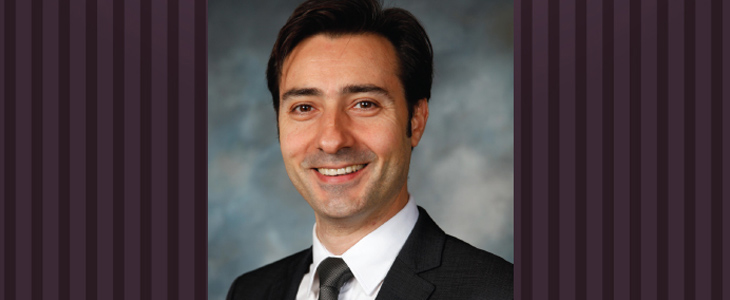
ACAMS Today spoke with David Sanchez Lopez, ACAMS’ European account manager, about how the anti-financial crime (AFC) industry has evolved in Europe and the challenges professionals in this industry are facing in France. Sanchez Lopez joined ACAMS in 2015 to lead the development of ACAMS in France and French-speaking countries in Europe. He is a graduate of the European Business School Paris and previously worked for McGraw-Hill Financial as the regional manager of its subsidiary Standard & Poor’s Capital IQ in Europe and at Thomson Reuters as a senior account manager.
ACAMS Today: As the European account manager, which European country has seen the fastest growth rate in membership and what factors have contributed to this growth?
David Sanchez Lopez: The U.K. and France have been the two countries with the fastest growth rates in membership in Europe. As far as continental Europe is concerned, France’s membership is clearly growing very fast. In my opinion, these are the main factors that have contributed to the growth:
- Being present as we continue investing in local markets to better serve our existing members’ and better address our potential members’ needs. An example of this would be the opening of the ACAMS Paris office and the recruitment of French-speaking team members.
- We have clearly seen a before and after momentum following the translation of the Certified Anti-Money Laundering Specialist (CAMS) exam into French in September 2016 and the launch of the French CAMS virtual classes. This year we will host three virtual classes in French again. I expect this number to increase in 2019 with at least one series per quarter.
- Key introductions and partnerships with local regulators and academics has also been important. A prime example of this is our partnership with Versailles Paris-Saclay University (UVPS) and their compliance officer degree. We are working toward bundling UVPS’ program with the CAMS certification. It would be a perfect combination with CAMS focusing on the international aspects of AFC matters and UVPS’ degree addressing specific national and local issues.
- Last but not least, I would like to take this opportunity to recognize the great work that the France Chapter has done since its launch in December 2013. Every event organized has been a real success in terms of both topic expectations and attendance and it has clearly contributed to ACAMS’ growth and awareness in the marketplace.
AT: How has anti-money laundering/counter-terrorist financing (AML/CTF) changed since you first joined ACAMS two and a half years ago?
DSL: First, I have to say that I entered into the AML/CTF and compliance world when I joined ACAMS. Before joining ACAMS, I had always had an old-fashioned cliché view of compliance matters as an administrative and unnecessary burden to do business. Those times are clearly disappearing, if not already gone.
Major penalties from authorities and increasing regulatory measures in the past five to six years have led companies in all sectors (not only banks, insurers and money services businesses), to review anti-money laundering (AML) controls and place the risk and compliance function at the heart of the business and on an even level playing field. From a support function, sometimes regarded purely as a cost center, compliance has become a critical and strategic area to ensure business is conducted in respect to the law and that it mitigates the risks of noncompliance, which is becoming increasingly costly.
Corporations are investing in training and education to develop a culture of compliance whilst transforming the business, not only within the financial security perimeter, but holistically across the organization to include all business owners. Changes such as having direct access to the board of directors and the possibility to incur in personal criminal liabilities have been significant catalysts for this transformation. For example, we see an increasing number of CEOs and COMEX members of major international banks enrolling in CAMS. As leaders, that is a very strong commitment and it sends a positive signal to all the underlying staff, businesses and regulators. Business lines and compliance functions are no longer disconnected, whilst in the past those could sometimes share an antagonist vision. Currently, and in the future, we can only expect an increasing positive cooperation as it is more efficient and profitable to run the business together (e.g., compliance professionals facilitating business whilst ensuring risks controls and front office professionals/business owners conducting operations whilst being also the first line of defense).
AT: What are some of the hot topics that will be discussed during the European Conference in May?
DSL: Compliance with the latest regulations will naturally be one of the hot topics as it is on everybody’s agenda. In Europe we are talking about the implementation of the EU Fourth AML Directive (4AMLD), the General Data Protection Regulation (GDPR) and the Payment Services Directive 2 (PSD2). With recent Foreign Corrupt Practices Act prosecutions of European entities and European regulatory developments (U.K. Bribery Act, Sapin 2 law in France, 5AMLD amendments), anti-bribery and corruption will also be one of the hot topics. The ever-changing specter of sanctions risks and penalties imposed on European institutions for violations of the Office of Foreign Assets Control sanctions will constitute one of the hottest topics of debate as well. I would also include AML for Fintech and cybercrime within the hot topics due to their inherent innovative nature.
AT: What specific obstacles are AFC professionals in France facing?
DSL: I would say that AFC professionals in France share many challenges with its European colleagues. Some of these challenges include:
- An increasing and ever-changing regulatory environment
- Increasing responsibilities
- An overwhelming workload
- The need to adapt to new technologies
If I were to mention something more specific I would report that the transposition of European directives into French national law may leave a certain degree of latitude, which makes it more challenging for professionals to anticipate regulatory expectations around best practices in the mitigation and prevention of financial crime. Whilst this latitude can present some advantages from a risk appetite/commercial point of view, it can also lead in some instances to penalties. The degree of latitude will need some necessary fine-tuning from AFC professionals in order to comply with regulations and to navigate through the regulator’s severe scrutiny.
AT: When you are not at the office, what do you enjoy doing?
DSL: When I’m not at work, I enjoy spending time with my children, Miquel Shaneihu who is three years old and Raphaël Benki who is one year old. I spend time with them doing outdoor activities as much as possible. We all enjoy water in all forms whether it is skiing in winter or swimming throughout the year. I also like to play soccer and practice tai chi. In addition, I volunteer whenever possible as a translator for several nonprofit organizations whose mission is to serve and defend the peoples of the Amazonian forest, their culture, art and spirituality.







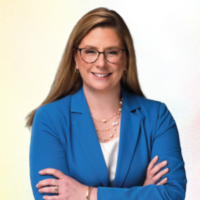
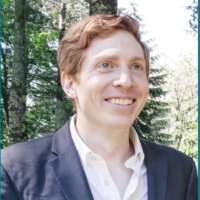
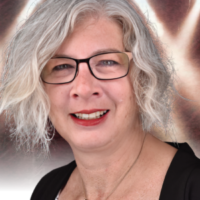
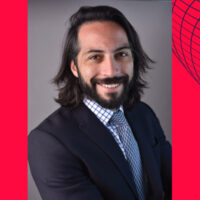
Je suis un grand admirateur de Mr David Sanchez. En plus de partager ses convictions dans cet article, ça serait un réel succès pour nous autres de l’Afrique francophone de voir l’ACAMS élargir les autres certifications en langue française telle que la fraude, sanction, l’éthique….
Merci pour cette intervention
Merci beaucoup pour votre commentaire.